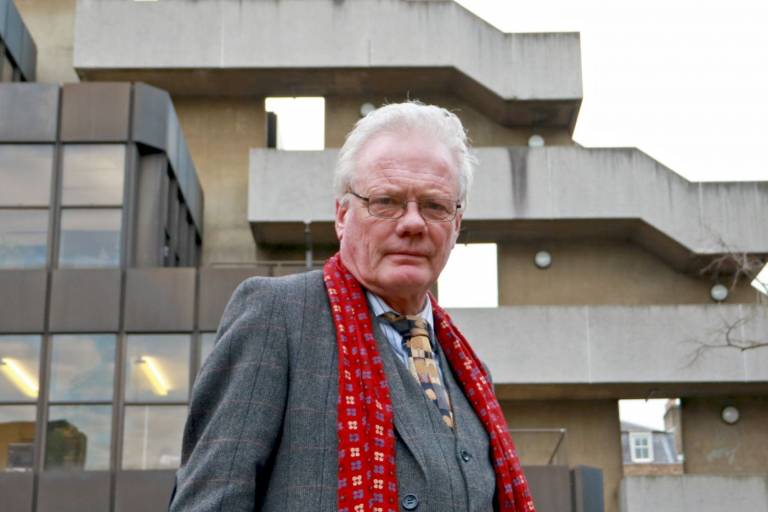The AI Exam Algorithm is not to blame – Humans remain very much in charge and are ethically responsible for the consequences

#ALevel and #GCSE #ResultsDay – A Low Moral Ebb
On Monday 17 August FE News published a piece on a lack of ethics in AI[1] which I co-authored.
Between the writing and the publishing, it became clear that the grasping villains and avaricious rogues that I had perceived to be behind the unethical abuses of AI had been joined by elements of the British establishment: the Secretary of State for Education and the officers of Ofqual, the examinations and assessment regulator.
The algorithm that they had devised to standardise A level and GCSE results is not to blame for the unnecessary distress caused to thousands of young people and a blatant attempt to impose a massive injustice on a whole age group.
The algorithm simply did what it was told to, quietly and efficiently. As with all AI, as with all machines, they simply do what they are built to do.
We are not yet into the world of science fiction where humans are enslaved by machines. The humans who design these things remain very much in charge and are ethically responsible for the consequences.
What the scandal has laid bare are the prejudices of those who devised the algorithm.
Private schools and grammars were faring better.
Small group sizes were favoured (despite evidence that small group size has a detrimental impact of performance at this level).
Students were ranked. A school or college’s historical performance was factored in.
This delivered a statistically satisfactory profile, restricting any insinuation of grade inflation.
This was the goal – maintaining macro standards across a cohort, giving universities and colleges a recruitment profile that they could cope with.
No hint of any justice for individuals.
No concern at self-fulfilling prophecies.
Students are not statistics
There is always individual movement within a demographic profile. Nor is performance predictable with such precision. Research at UCL[2] discovered that only 25% of grades across 3 A levels were accurate.
That does not mean that the teachers were necessarily wrong. There is nothing sacred about exams. They have their flaws. They suit some students better than others.
At this time the COVID pandemic has caused disruption to assessment regimes globally. However, there are always cases of individual disruptions: death in the family, illness, hay fever, menstruation.
The snapshot nature of an exam is far from being unflawed. They are not a scientific process, but a series of judgements by markers and moderators.
No algorithm should be in a position to over-rule these judgements. Part of the problem is the mystique that has grown up around exams, shrouded in secrecy and mysterious goings on.
At least this present episode has laid bare the built-in presumptions of those who run the examination system. It is clear that students do not always receive the grades that they deserve.
This whole process has caused havoc
 At East Coast College Group, which has within the group one of the highest performing sixth form colleges in the country, Principal Stuart Rimmer suggested:
At East Coast College Group, which has within the group one of the highest performing sixth form colleges in the country, Principal Stuart Rimmer suggested:
“Despite our very high achieving results that had a reasonably good ‘fit’ institutionally, it has been heartbreaking with students having to delay or fight for university places they should easily secure.
“The algorithm produced some outlier results. Even now with a U-turn it leaves some progression to higher education or apprenticeships at risk.”
For me this is an illustration of wider points:
- Firstly, there is a lack of trust in the system of teaching professionals to award assessed grades, and
- Secondly shines a spot line on exam inequality.
In other years there is still moderation using standard distribution against previous years. The UCAS system and even the wider examination system and its application is not free from bias and often replicate success for those already successful or testing a government preferred type of intelligence or skill.
These adjustments, decisions and approaches are not simply mathematical but are both political and ethical actions.
Assessment is one of a teacher’s core skills
There are alternative assessment regimes. BTEC achieved its reputation for excellent vocational learning based entirely on course work, only having to switch to examinations in 2016 due to government pressure.
Teachers are perfectly able to make judgements. Assessment is one of their core skills. Obviously, there is a tendency towards bias and optimism, particularly in a competitive education market and with inspection by performance, but this can be moderated out.
Just as with exams it requires seasoned professionals studying a sample script and agreeing a grade. Schools were closed on 20 March. That left sufficient time to establish an effective moderation system.
In the past teachers were trusted to run course work assessed systems and were supported with the training to make them effective. It was a part of our professional portfolio.
Dangerous Territory
But no. Instead the decision was taken to rely on artificial intelligence, to devise a system that would iron out human weakness. A system that neglected the individual in order to achieve a pre-determined profile. A system that had built into it the presumptions of its designers.
This is dangerous territory, to over-rule a professional judgement with an algorithm that can have no sensitivity to the performance of an individual. It is morally wrong.
Thankfully the ensuing outcry has prompted a political U-turn. But it has badly damaged the credibility of the system that is was supposed to protect.
Paul Grainger is Co-director of the Centre for Education and Work, UCL, and Co-Chair of the G20 Task Force on Education and Skills
Stuart Rimmer is Chief Executive Officer at East Coast College Group
[1] A call for ethics in the curriculum, Silvia Lanza Castelli and Paul Grainger, FE News (17 Aug 2020)
[2] Predicting A-level grades accurately ‘near-impossible task’ UCL (11 Aug 2020)











Responses